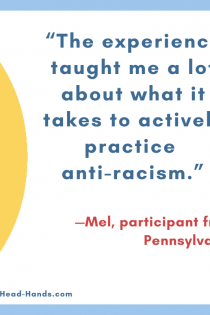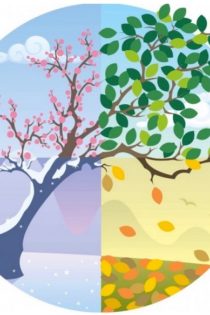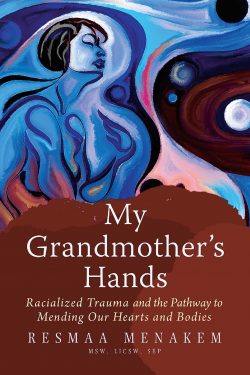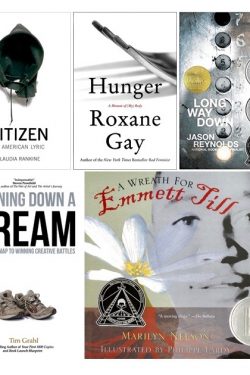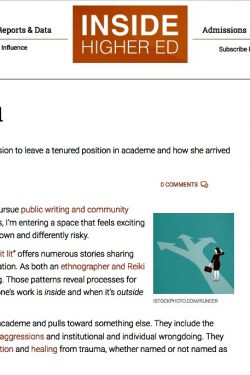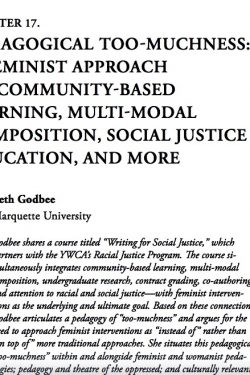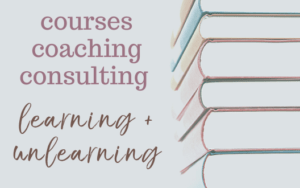Welcome to this page of handouts and resources for the workshop, “What Matters to You Most? Career Discernment for YOUR Career Path,” facilitated by Beth Godbee, Ph.D. (consultant and founder of Heart-Head-Hands.com). This workshop is sponsored by the Graduate School of the University of Minnesota and offers graduate students tools for ongoing career discernment. Workshop Information Tuesday, March 17, 2020 3:00 PM – 4:30 PM CDT Meeting via Zoom (Link Shared with ... Read more ...
teaching
The Coach as Ideas Editor: How Coaching Facilitates Transformation
This week, a dear friend stopped me mid-sentence and exclaimed: “Beth, you’re an ideas editor!” That’s language (a description for coaching) that I’d never considered. But my friend slowly explained that what I do isn’t just saying back what I hear and isn’t just asking a series of questions. Instead, it’s combining what I’ve learned in writing centers, through Reiki, and from years of mentoring writers and researchers. That is, coaching is holding up a mirror and ... Read more ...
3 Reasons to Participate in the 40-Day Practice on Strengthening Emotional Literacies to Counter White Fragility
Starting on November 22nd and running for the final 40 days of 2019, I’m offering the “40-Day Practice: Strengthening Emotional Literacies to Counter White Fragility.” Every time I offer this practice (this will be my third and second online), I get a lot of questions, including what this work involves, why it asks for a commitment of 40 days, and why it focuses on emotions. Though I hope the course description answers many of these questions—and I’m happy to answer ... Read more ...
Q&A with Alexa Eason: Intern with Heart Head Hands
This post introduces Alexa Eason, Georgetown senior and intern with Heart Head Hands, as she talks about her internship projects, semester goals, and commitments. This post also introduces a new series of interviews aimed at sharing projects related to social, racial, and environmental justice *and* asking others the question that runs through this blog: “How do you strive toward everyday living for justice?” In future Q&A posts, we’ll learn about embodied healing ... Read more ...
Responding to Microaggressions
How do we respond to microaggressions, or those everyday and commonplace actions that convey bias, invalidate people, and reinforce structural oppression? We know from research and personal accounts that microaggressions occur all-too-frequently across contexts—workplaces, family gatherings, and community settings. From hurtful words to dismissive gestures, microaggressions do more than communicate harm. They have wide-reaching impact, for they deny access, constrain ... Read more ...
It’s More than End-of-the-Year Exhaustion: Semester Rhythms and Recurring Burnout
Today Inside Higher Ed published my article, “Semester Rhythms and Recurring Burnout,” reflecting on the exhaustion that many educators and academics face at the end of each school year. This article weaves together multiple threads of feeling, thinking, and doing (heart-head-hands) from my past few weeks, including: attention to my body’s fluctuating energy levels, seasonal changes, and continued recognition of semester rhythms; ongoing reflection on career ... Read more ...
Responding to Injustice: Why Settling the Nervous System and Slowing Response Times Matter
Recently, I’ve had several moments of witnessing first-hand the links between settling the body (that is, settling the nervous system) and showing up more mindfully, more open, and more like the “best self” that’s needed when striving for social and racial justice. In contrast, moments when my nervous system is “keyed up” (from exhaustion, from unresolved tension, from disappointment, and more), I find myself having knee-jerk reactions and being short with ... Read more ...
Loving to Read Again
During graduate school, there were many weeks of being so overloaded by assigned reading that I couldn’t do it all and felt constantly behind. I recognized that the goal was to learn to skim and to put my hands on more and more research, even if I couldn’t savor many pieces. The trouble was that the more I couldn’t savor what I was reading, the more I associated reading itself with feelings of being overwhelmed and behind. When I shared with a mentor how stressful ... Read more ...
Announcing “Outside Higher Ed” in Inside Higher Ed
Today the first of four articles about my experience leaving academia appeared in Inside Higher Ed. As a series of articles, “Outside Higher Ed” seeks to identify processes that can be used by academics questioning whether and/or when to leave academia. Over the next four months, I hope to share my chronological process of leaving a tenure-track position, walking through four stages: (1) origin—recognizing the seed or origin of the idea to leave, (2) ... Read more ...
“Pedagogical Too-Muchness,” Or a Call for Shaking up Schooling
This year I turned 39, and it’s my first in which I won’t be returning to school. I’ve spent my life in academic settings—as a child and adult, as a student and teacher, as a researcher and writer. Many of my friends are teachers, too, so I understand how August brings both angst and anticipation for the upcoming school year. Recently, I’ve been having conversations with friends about syllabi and course designs. I’ve been reading social media posts about the start of ... Read more ...



